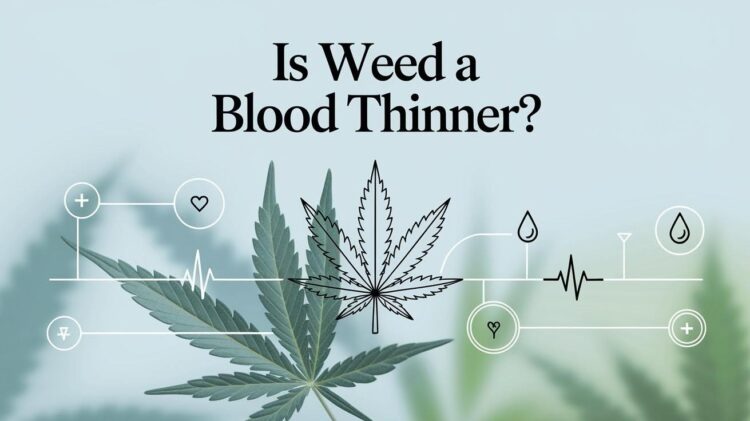As cannabis becomes legal nationwide, patients often ask: “Is weed a blood thinner?” This is a serious health question, especially for Americans already taking blood-thinning medications.
You need clear answers. We’ll examine the current research on cannabis and blood clotting. You’ll learn what scientists have found about THC and CBD effects on your blood.
This article provides medically backed information from published studies. We’ve reviewed the available evidence to give you honest, straightforward answers without hype or false claims.
You’ll understand how cannabis might affect blood clotting and the safety risks of combining weed with blood thinners. We’ll also share what medical experts currently recommend.
Important note: This information doesn’t replace medical advice. Always consult your doctor about cannabis use, especially if you take blood-thinning medications.
Cannabis as a Potential Blood Thinner: Current Research
Current research on cannabis and blood thinning is extremely limited, with most studies showing cannabinoids don’t work as strong blood thinners, and there’s a significant gap between laboratory findings and real-world human effects.
1. The Scientific Evidence Overview
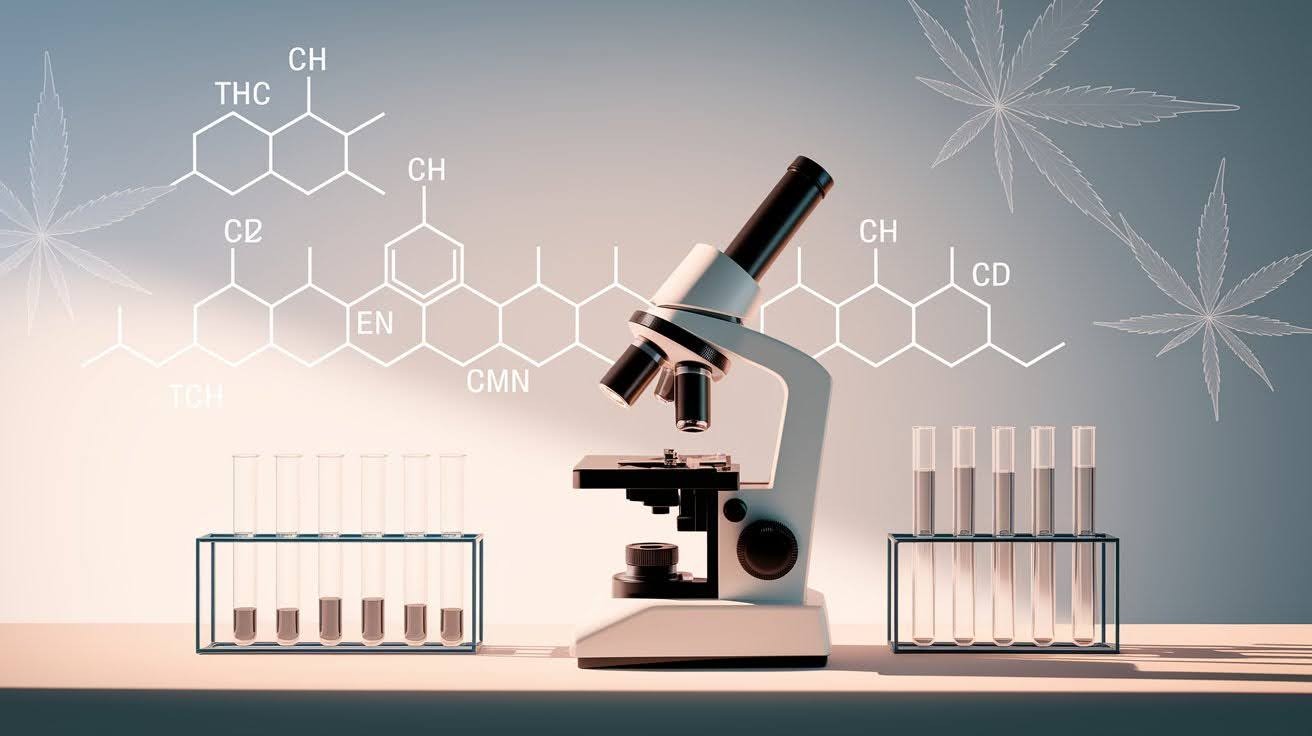
Here’s what we know so far: The research on cannabis and blood thinning is extremely limited. Most studies show that cannabinoids don’t work as strong blood thinners.
This might surprise you if you’ve heard otherwise online. There’s a big gap between what happens in a lab and what happens in your body.
Scientists test cannabis compounds in test tubes and on lab animals. But human bodies work differently. The few studies we have don’t give us clear answers yet.
We need much more research to understand how cannabis truly affects blood clotting in real people.
2. THC and Blood Thinning Properties
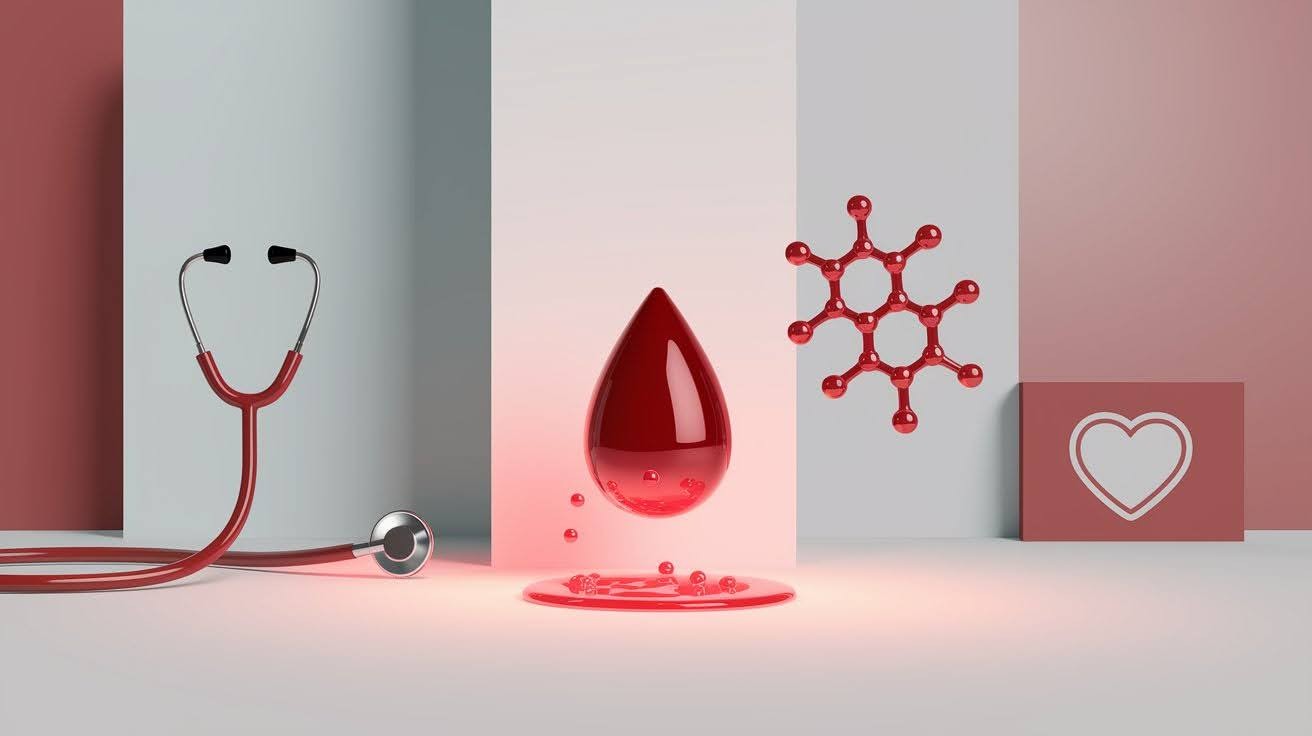
Only a handful of small lab tests suggest THC might thin blood. We’re talking about tiny studies here, not the kind of research doctors use to make treatment decisions.
One study used overweight rats and found that both THC and CBD seemed to thin the rats’ blood. But here’s the problem: What works in rats often doesn’t work the same way in humans.
The study suggested THC might block an enzyme called thrombin, which helps your blood clot. THC also interacts with PPARy3 receptors.
Bottom line? These rat studies can’t tell us if cannabis will thin your blood safely or effectively.
3. The Role of Endocannabinoids
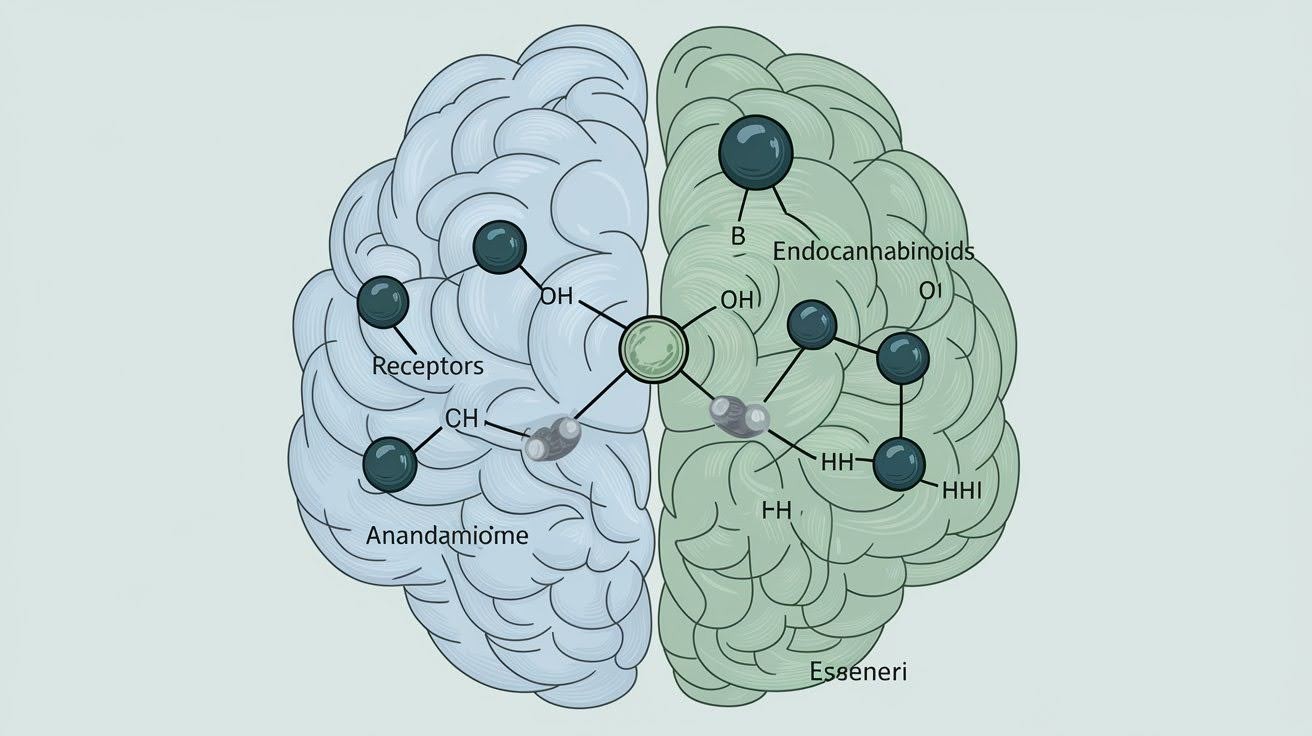
Your body makes its cannabis-like compounds called endocannabinoids. Here’s where it gets confusing: One compound called anandamide might promote blood clotting, which is the opposite of what you’d expect.
These tests happened in test tubes, not living bodies, and test tube results often don’t match real-world results. The relationship between different cannabis compounds is complicated.
Some might think of blood, while others might think of thickening it. We simply don’t know enough yet. This complexity makes it impossible to predict how cannabis will affect your blood clotting without more comprehensive human studies and clinical trials.
4. Phytocannabinoids vs. Blood Coagulation
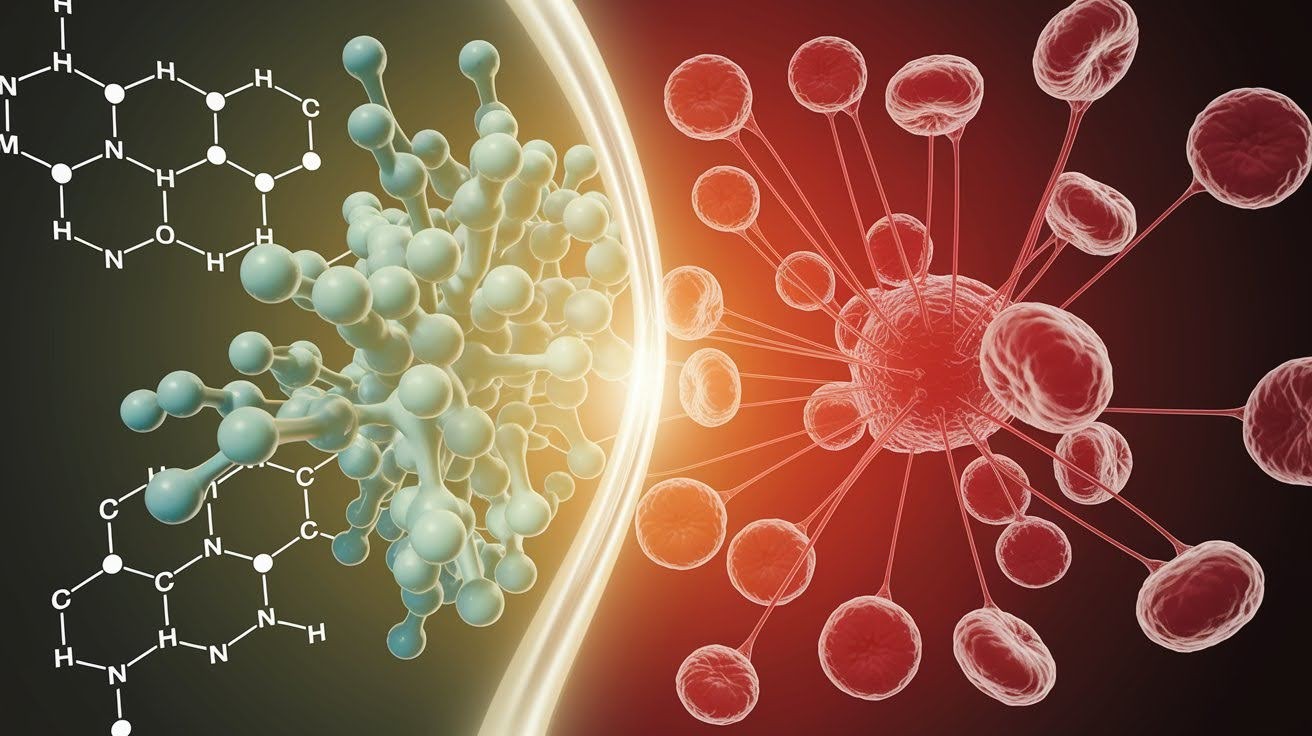
Most medical experts agree: Plant-based cannabinoids don’t consistently thin blood. The evidence is weak.
Only a few case studies document blood-thinning effects in marijuana users, and most of these cases involved people who were already taking blood thinners.
This makes it hard to know if cannabis caused the effect or if it was the prescription medication. The consensus among researchers is that phytocannabinoids from cannabis plants are not reliable anticoagulants.
Without solid clinical evidence, doctors can’t recommend cannabis as a blood-thinning treatment.
More controlled studies with human participants are desperately needed to understand these effects properly.
CBD and Blood Thinning Effects
CBD oil has blood-thinning properties similar to THC despite coming from hemp plants, operating through comparable mechanisms that can impact blood clotting without producing psychoactive effects.
1. How CBD Affects Blood Clotting
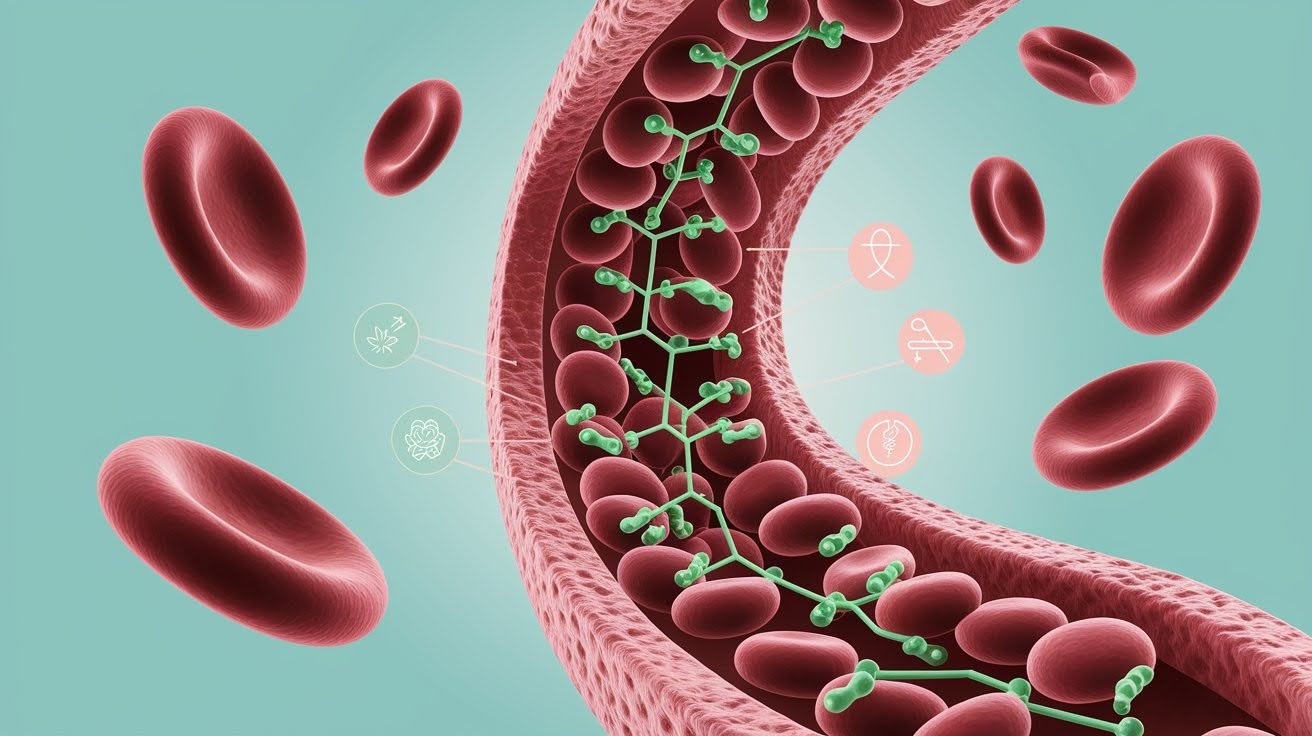
CBD oil can thin your blood, even though it comes from hemp plants. This might shock you: CBD works similarly to THC when it comes to blood effects.
The source doesn’t matter as much as you’d think. CBD has been shown to have some blood-thinning properties, but again, the research is limited.
Studies suggest CBD operates through similar mechanisms to cannabis, possessing properties that give it blood-thinning capabilities.
Despite being derived from the hemp plant, CBD oil still exhibits these effects. The key difference is that CBD doesn’t produce the psychoactive effects associated with THC, but it can still impact your blood’s ability to clot.
2. CBD’s Interaction with Blood Thinning Medications
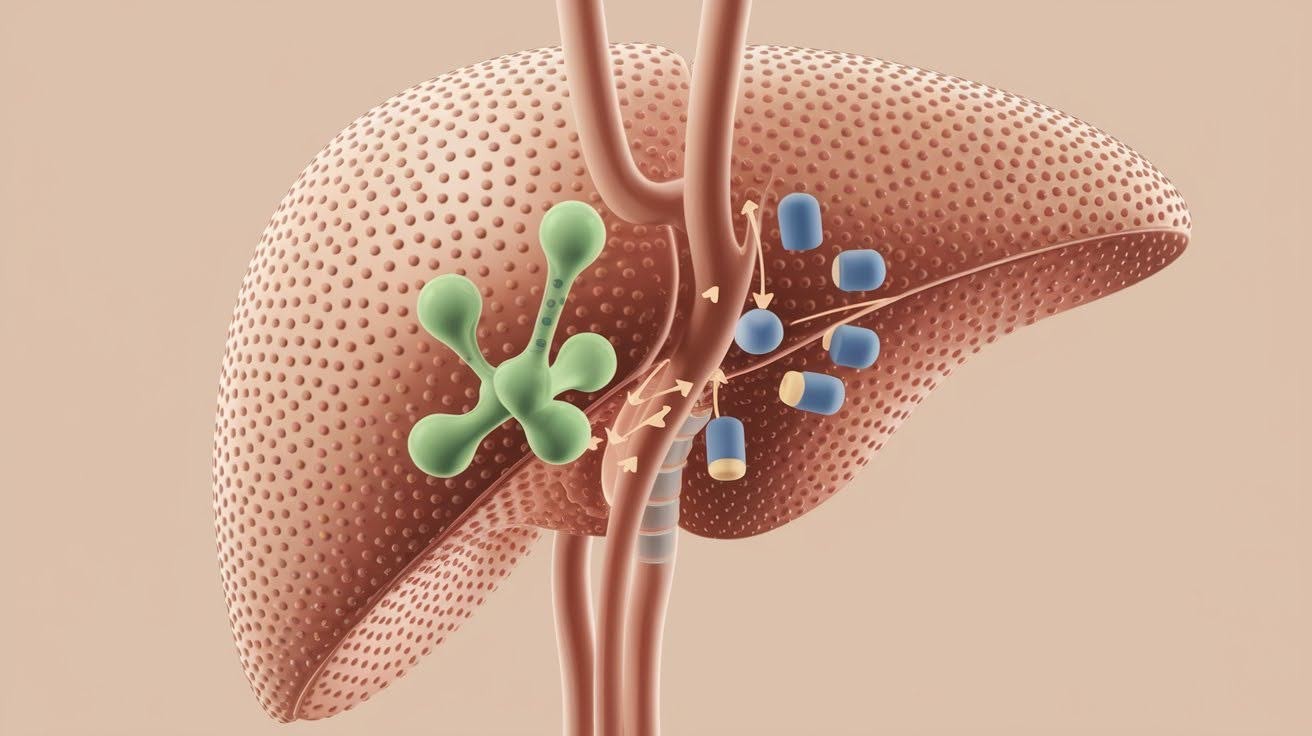
This is where things get dangerous. CBD affects how your body processes common blood thinners like ibuprofen, naproxen, and warfarin.
Instead of breaking down normally, these medications stay in your system longer. Why does this happen?
CBD changes how long these drugs remain active in your body, creating stronger blood-thinning effects than your doctor intended.
Reports show that CBD products can influence the impact of certain blood thinners on the body by altering the duration it takes for your body to metabolize these drugs.
This extended influence on blood clotting mechanisms can lead to dangerous bleeding complications that weren’t anticipated in your treatment plan.
3. The Liver Connection: Cytochrome P450 Enzyme System
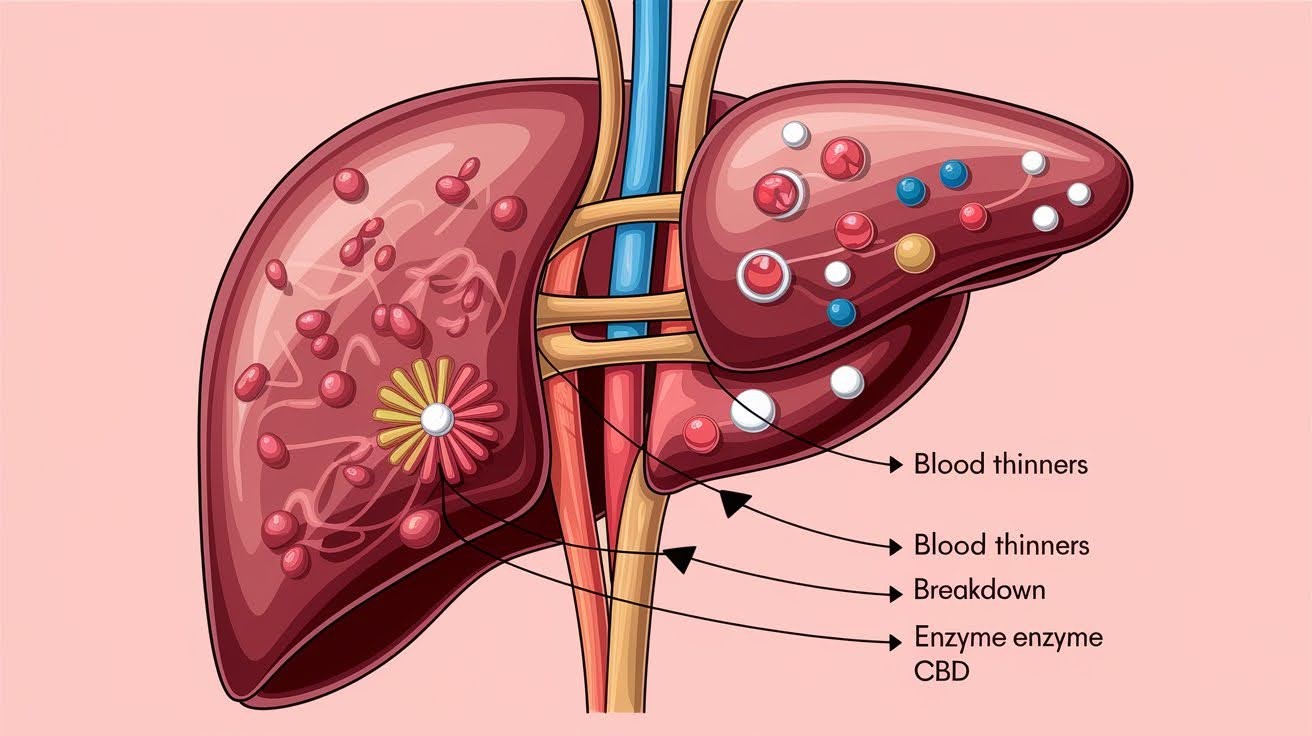
Your liver is like a processing plant for medications, using enzymes to break down drugs so your body can eliminate them safely.
CBD blocks these enzymes, specifically interfering with the cytochrome P450 system that metabolizes many medications. What does this mean for you?
Blood-thinning medications stay in your system longer and become more powerful, increasing your risk of bleeding complications.
Think of it this way: If your liver can’t break down blood thinners properly, they build up in your body.
CBD achieves this by obstructing the metabolism of these medications in the liver, creating potentially dangerous drug interactions that can last much longer than expected.
Safety Considerations: Cannabis Use with Blood Thinners
The relationship between cannabis and blood thinners is complex due to limited research, but patients on anticoagulants typically have compromised cardiovascular systems that make them more vulnerable to cannabis effects, creating additional risks.
1. Cardiovascular Risk Factors
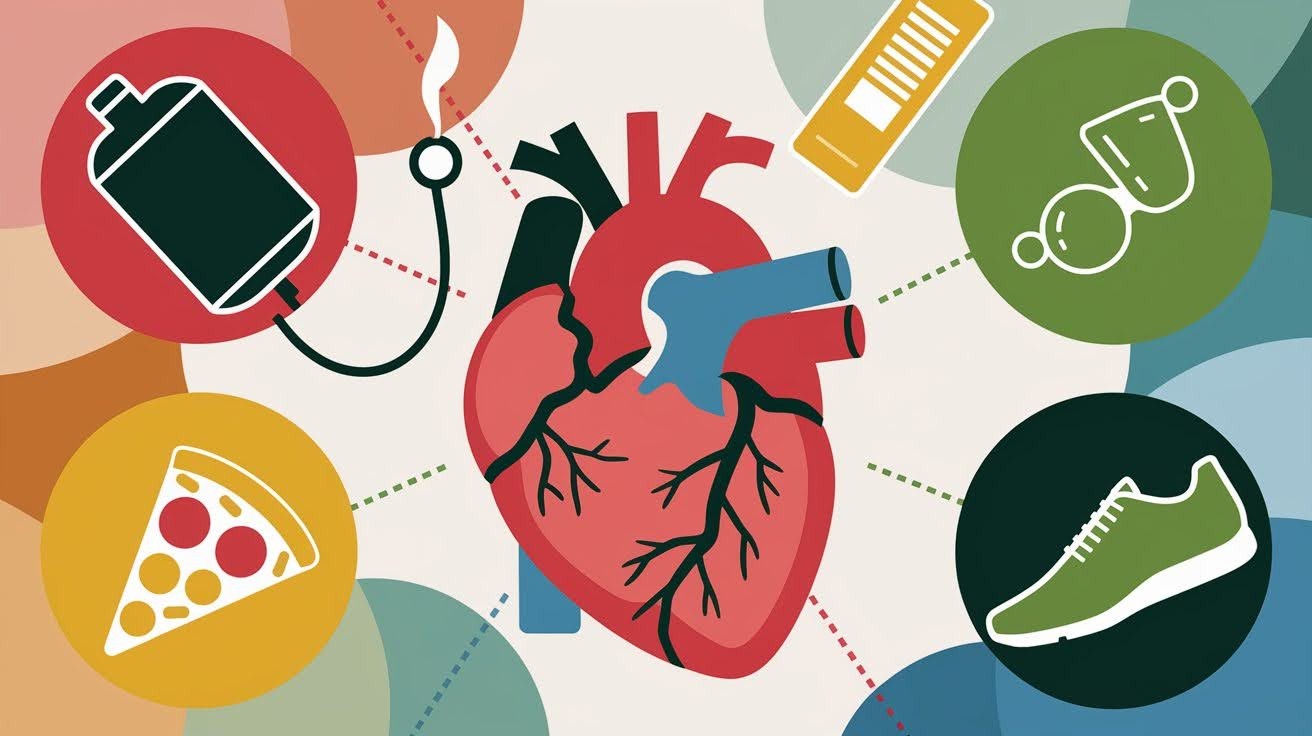
The relationship is complicated because we don’t have enough research, but here’s what we do know. People who take blood thinners usually have heart problems, and their cardiovascular systems are already compromised.
These patients are more vulnerable to cannabis effects because their hearts can’t handle additional stress as well as healthy hearts.
Generally, patients taking anticoagulants tend to have cardiovascular issues, which can be made worse by using cannabis.
The complex relationship exists due to limited research availability, but the patient populations typically prescribed anticoagulants already have existing cardiovascular issues and vulnerability factors that make cannabis use particularly risky for this group.
2. THC’s Impact on Heart Function
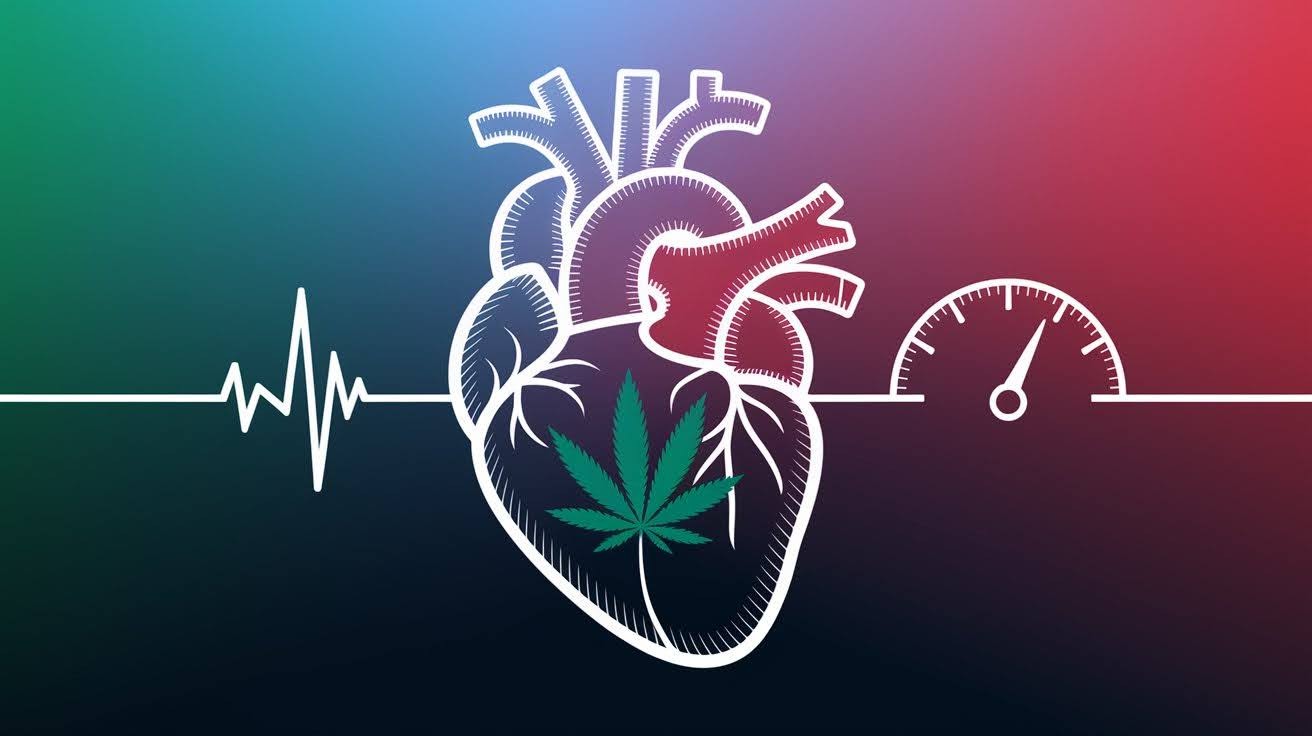
THC affects your heart in several ways by increasing your heart rate and changing your blood pressure. These effects happen regardless of how you consume THC, though smoking and vaping create the strongest heart effects.
But edibles can cause problems, too. If your heart is already weak, these changes can be dangerous because your cardiovascular system might not handle the extra stress.
THC is known to cause changes in heart rate and blood pressure, and these effects are particularly pronounced when smoking or vaping THC products.
The consumption method variations matter, but all forms can affect cardiovascular function. People with compromised cardiovascular systems face particular risks from these THC-induced changes.
3. High-Risk Patient Populations
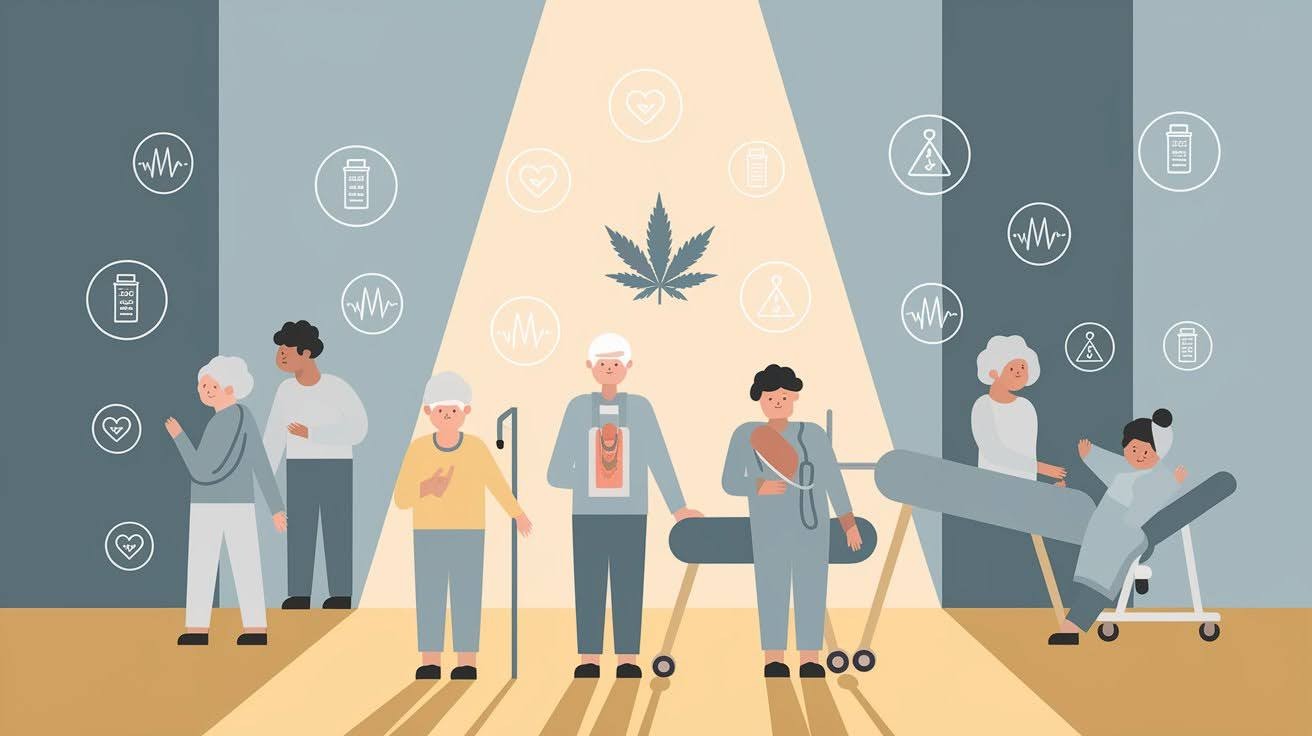
Some people should be extra careful with cannabis use, especially stroke survivors who face higher risks with THC.
Heart attack patients need to avoid additional heart stress that cannabis can create. Age matters too because older hearts are more sensitive to THC’s effects, with blood pressure changes hitting harder and heart rhythm disruptions becoming more dangerous.
Other cardiovascular dysfunction concerns also increase your risk significantly. Those with heightened risks of strokes, heart attacks, and other cardiovascular problems are commonly prescribed blood thinners.
Given that THC can worsen cardiovascular issues in susceptible individuals, it’s likely best for patients taking blood thinners to avoid it completely to prevent serious complications.
4. Recommendations for Blood Thinner Patients
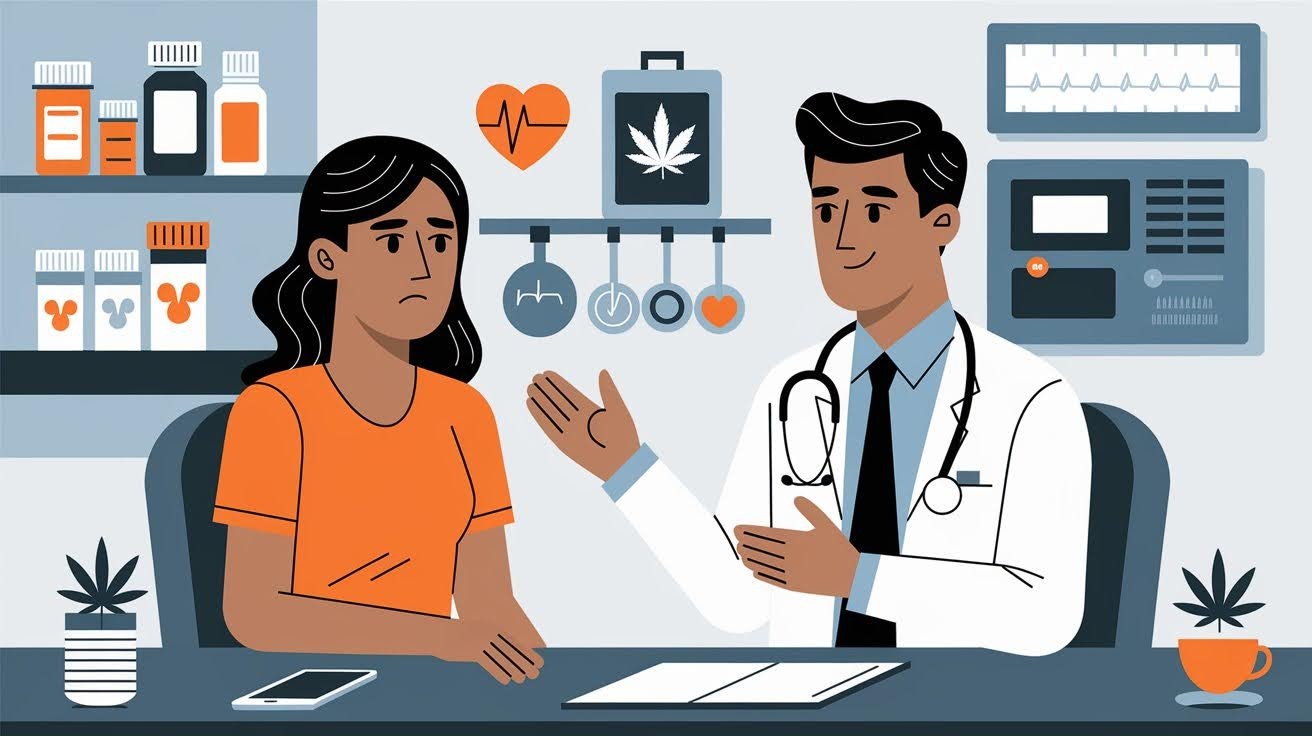
Medical experts are clear: If you take blood thinners, avoid THC completely. The main concern isn’t blood thinning but how THC affects your heart rate, blood pressure, and heart rhythm.
Your compromised cardiovascular system can’t handle these changes safely, and the risks outweigh any potential benefits.
Medical advice strongly suggests that patients on blood thinners should avoid THC because the primary concern is its impact on blood pressure, heart rate, and heart rhythm.
An older heart might be even more susceptible to these changes. The focus should be on blood pressure, heart rate, and rhythm impacts rather than potential blood-thinning effects.
Talk to your doctor before using any cannabis products.
Conclusion
So, is weed a blood thinner? The science shows it’s not that simple. While some studies suggest THC and CBD might have mild blood-thinning effects, the research is extremely limited and mostly done on lab animals.
Here’s what matters most: If you’re taking blood thinners, the bigger concern isn’t whether cannabis thins your blood. It’s how THC affects your heart rate and blood pressure, which can be dangerous for people with cardiovascular issues.
You now have the facts to make an informed decision. Always talk to your doctor before mixing cannabis with any medications, especially blood thinners.
Have questions about cannabis and your health? Drop a comment below or share this with someone who might find it helpful.
Frequently Asked Questions
Is weed a blood thinner?
Current research shows that weed is not a reliable blood thinner. While some small lab studies suggest THC and CBD might have mild blood-thinning effects, most cannabinoids don’t function as potent anticoagulants. The limited evidence comes mainly from animal studies that don’t directly apply to humans.
Can smoking weed affect my blood-thinning medication?
Yes, cannabis can interact dangerously with blood thinners. THC affects heart rate and blood pressure, which is risky for people already on anticoagulants. CBD also interferes with how your liver processes medications like warfarin, making them more potent and increasing bleeding risks.
Does CBD thin blood like THC?
CBD has some blood-thinning properties similar to THC, but the bigger concern is drug interactions. CBD blocks liver enzymes that break down blood-thinning medications, causing drugs like ibuprofen and warfarin to stay in your system longer and work more powerfully than intended.
What does science say about marijuana as a blood thinner?
Scientific evidence is extremely limited. Only one small study on rats suggested cannabis compounds might thin blood by blocking the thrombin enzyme. However, most medical experts agree that plant-based cannabinoids aren’t consistent anticoagulants, and more human research is desperately needed.
Is it safe to use weed if I take blood thinners?
No, medical experts strongly advise against combining cannabis with blood thinners. The main risks aren’t blood-thinning effects but cardiovascular impacts like increased heart rate and blood pressure changes. People on anticoagulants typically have heart conditions that make these effects particularly dangerous.

